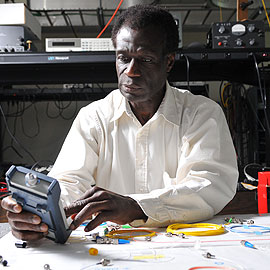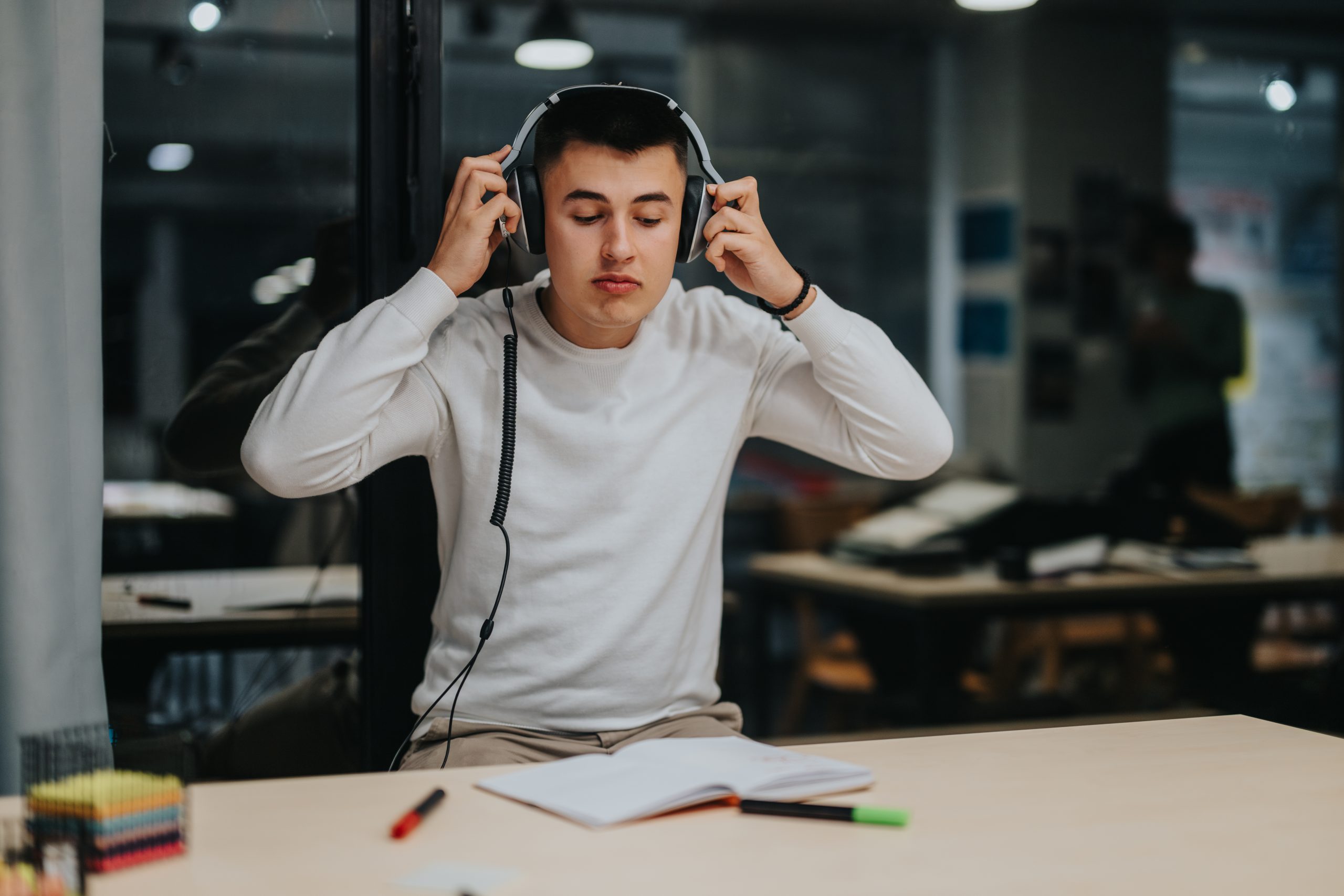Getting occasional rides to school from a neighbor wasn’t just a matter of transportation for Eric Donkor.

It was a source of inspiration, as well.
As a junior high school student in Ghana, Donkor, now an associate professor of electrical and computer engineering in the School of Engineering, faced a four-mile walk to school. As luck would have it, John F. MacKenzie, a volunteer in CUSO (Canada’s equivalent to the U.S. Peace Corps), was teaching physics at the same school. And he lived only a short distance from Donkor’s house. He took a shine to the young student and, when their schedules matched, would offer him a ride to class.
During these rides, they talked about a lot of things, including MacKenzie’s passion for short wave radio. A licensed amateur (or ham) radio operator, MacKenzie enlisted Donkor’s aid in setting up his antenna and transmitting equipment. The year was 1967, long before the advent of the Internet or cell phones, and Donkor says, “I was amazed that he could talk to his folks back in Canada. I couldn’t believe it! I was really curious and I wanted to learn. Luckily, John really liked me. When he left Ghana, he gave me all his equipment except the transmitter.”
It was soon clear that Donkor’s interest in electronics was much more than a passing fancy. “Here I was,” he continues, “driving my mother crazy at 2 a.m. reading instruction books and teaching myself electronics. She kept telling me to go to bed! By the next year, I had built my own radio. By 1969, I had built my own television set. I didn’t have to buy anything extra because John had left me so much equipment.”
When American Peace Corps volunteer George Hathaway arrived on the scene, Donkor’s luck continued. Hathaway was a high school mathematics teacher who had a way with words. Donkor says, “My goodness, if George teaches you math, there’s no way you won’t like it. It was like he was telling a story. He made math so real.”
Hathaway’s influence didn’t end in the classroom. According to Donkor, life at Wesley Grammar School (a secondary level boarding school in Accra) meant that students were always waiting for mail from home, or borrowing from each other, when they ran out of ‘essentials’ such as toothpaste, shampoo, or snacks.
“George first asked me why we didn’t have a science and math club, and when I told him we didn’t have any money to start a club, he said we should borrow money from the school, buy some of the things that other students were always needing, and sell them at a small profit. Then use that money to start a club.”
Excited about the possibilities of a new enterprise, Donkor and his classmates responded to the challenge. “We didn’t have anywhere to set up our store,” he says, “so George showed us how to build our own in an unused area in the art block. He got me so excited. He made me the de facto leader … it was like building Noah’s Ark!
“That’s how I first learned about leadership, and when we started the club, I became its first president,” Donkor adds. “I was extremely lucky … I actually don’t know if it is providence or luck … but had he not come along and made me enjoy math and taught me how to work with people and to develop organizational skills, I might have gone in a completely different direction.”
Donkor went on to graduate from the University of Cape Coast in Ghana with a bachelor’s degree in physics and a diploma in education, but not before he was further influenced by the Peace Corps.
“I had a great physics teacher for one semester in my last year of college,” he says. “He was a Peace Corps volunteer from Montana. I’d never seen anything quite like it. He made me ‘feel physics.’ His Peace Corps friends were all so supportive of me, and they were the ones who encouraged me to continue my schooling in the United States.
“I had the opportunity to study in England or in Australia, but I thought about my experiences with Peace Corps volunteers and I said to myself … if this is what the U.S. is all about …that’s where I’m going.”
Donkor arrived in Boston in 1981 and completed his master’s degree in electrical engineering at Boston University. He then came to UConn, where he earned his Ph.D. in electrical engineering in 1988. He has taught in the School of Engineering and conducted research in fiber optics and opto-electronic devices ever since. Not a bad outcome for a young African boy who wouldn’t go to bed until he’d ‘figured it all out.’
The International Services and Programs Department is holding a panel discussion featuring returned Peace Corps volunteers on Tuesday, November 16 from 5:00-7:00 p.m. in Student Union 304A. Featured on the panel will be representatives from the Peace Corps and returned volunteers from Micronesia, Cameroon, Kiribati, and South Korea.

